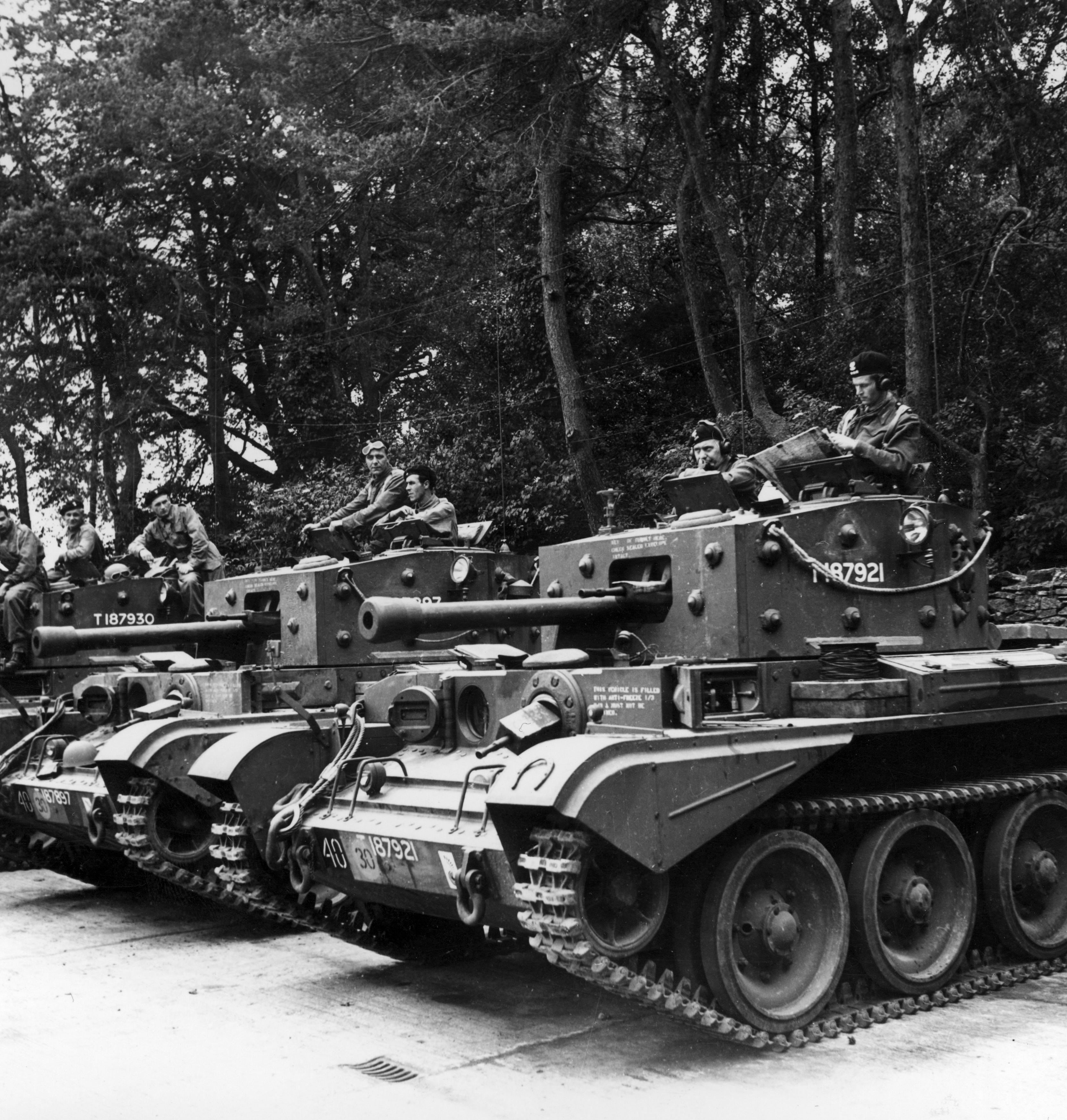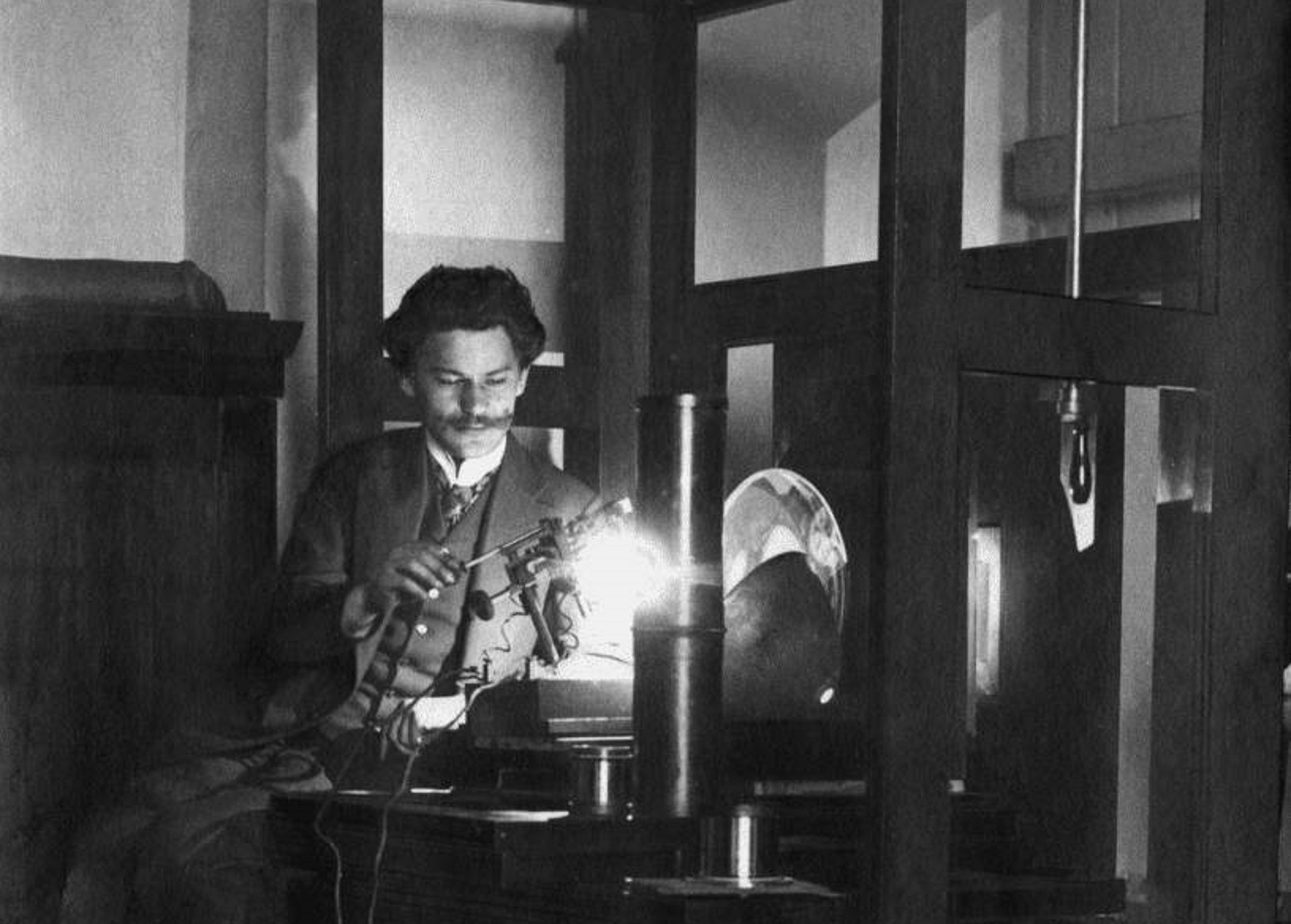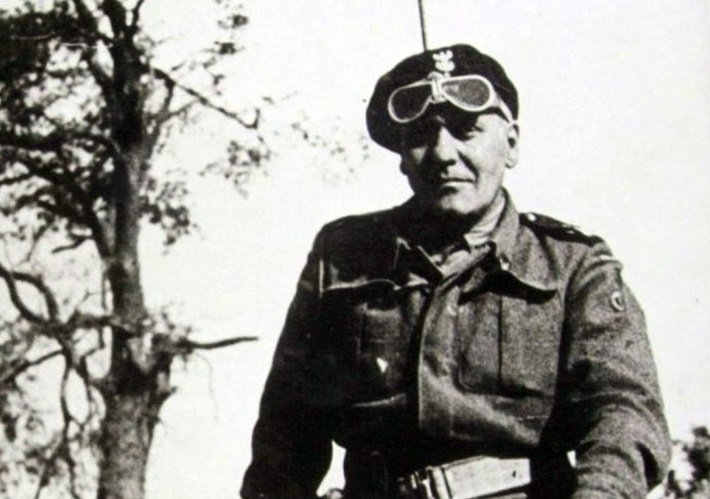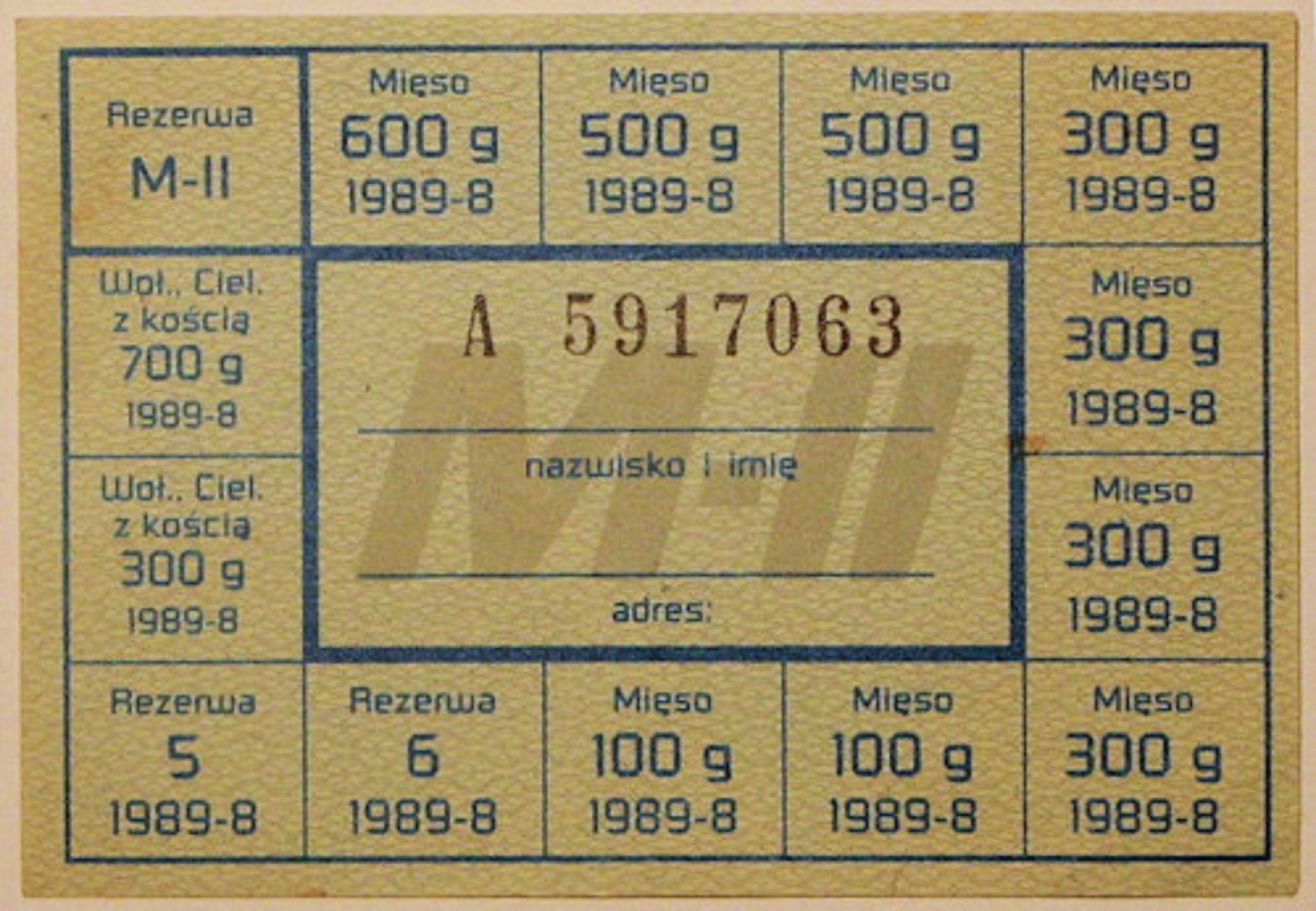Generał Stanisław Maczek has gone down in history as a brilliant army general. The Germans called his army the Black Devils. He himself often said that „the Polish soldier fights for the freedom of all nations, but dies only for Poland”.
by Piotr Abryszeński
Stanisław Maczek was born on the 31st of March 1892 to a Polish intelligentsia family in a small town, Szczerzec, not far outside the city of Lwów (Lemberg), which was then located in the state of Galicia, part of the Austrio-Hungarian Empire. In his youth, he studied Polish philology as well as philosophy in the humanities faculty of the Jan Kazimierz University in Lwów. He was the student of Professor Kazimierz Twardowski, founder of the Lwów-Warsaw school of philosophy. Led by patriotic feelings, he signed up to the Polish Riflemen’s Association, a socio-educational organisation with a paramilitary profile. The association was the foundation for the development of the Polish Legions in 1914, however Maczek was not able to fight in their ranks. As a subject of the Austro-Hungarian Empire, soon after the outbreak of the First World War, he was mobilized into the army ranks of the Austrio-Hungarian empire. It was only there that his military and commandeering talents were discovered, for which he received numerous promotions and decorations. At the time of the fall of the Hapsburg Monarchy on the 11th November 1918, he deserted the Austrio-Hungarian army and joined the Polish Army and took part in battles for independence and the borders of the Polish state.
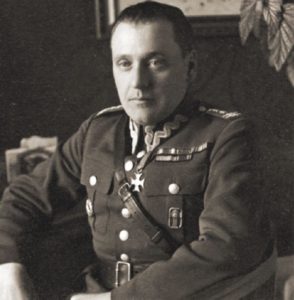
Ultimately, he stayed in the Polish Army. His superiors praised his courage, drive and ability to make decisions in the field of battle. In the autumn of 1938, an unusual decision was taken, entrusting to Maczek, who was at the time a Colonel, responsibility for commanding the 10th Cavalry Brigade. Up until then, he had only had experience of commanding units of the infantry, and now, he was faced with the task of commanding large motorized troops, which, for the Polish reality of the time, were a novelty.
Maczek passed the most serious test of the preparation of his troops after the Nazi German attack on Poland on the 1st September 1939. Thanks to the tactical skills of their commander, the 10th Cavalry Brigade, was able to inflict serious losses on the more numerous German forces. For his stance during this military operation, Maczek was decorated with the gold cross of the War Order of Virtuti Militari IV Class and promoted to the position of general of the 10th Brigade. After the Soviet invasion of 17th September 1939, the 10th Brigade received the order to evacuate the country.
In France, based on the soldiers and equipment evacuated from Poland, there began to be formed the 10th Brigade of the armoured cavalry. However the French were not eager to help the Poles form an armoured division. After the German invasion of France, Maczek’s units also fought to defend France, however, after the capitulation, General Maczek and his forces landed in Britain. There too, in 1942, a 1st Armoured Division was formed which was to have its proudest historical moments in battles fought in Western Europe between 1944-45.
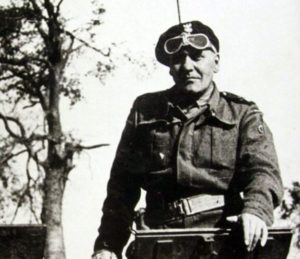
The Polish Division was relocated to Normandy at the end of July/beginning of August 1944. Shortly after landing in Normandy, in August 1944, when in the Nazi Germany occupied Warsaw and the Warsaw Uprising was underway, General Maczek’s soldiers were directed to support the fierce battles around the Normandy city of Falaise. That bloody battle went down in history as the “Falaise Pocket”. The aim of the operation by the allied armies, was to cut of the German return route after first penetrating their defences in Normandy. Due to the difficult situation and being surrounded by German forces, supplies for the Polish armies were delivered solely by air. Thanks to the arrival of the 4th Canadian Infantry Division, it was possible to rebuff German attacks and force them to retreat.
In the subsequent days, the division was able to regroup their troops and go after the retreating armies of the enemy side and to then cross the French – Belgian border. There, already at the beginning of September, Belgian cities were being liberated, amongst them Ypres and Tielt, delivering heavy losses to the Germans. Full of energy, Maczek’s men took part in the liberation of subsequent cities in occupied Belgium, such as Ghent, Lokeren and Saint Nicolas. In mid September, they crossed the Dutch border, from which, after long battles in Zeeland, they were directed to Brabandt in order to displace the Germans from Breda.
Control over Breda was fundamentally important, strategically, for communication reasons. The Germans decided to build strong defence fortifications with the aim of maintaining and retaining control over the city. An effective attack of the Allied troops could frustrate the Germans from directing new military reserves to the Netherlands. Battles over the city were particularly fierce: serious difficulty was created by the terrain around the city, as well as numerous wetlands which prevented the crossing over of armies carrying heavy equipment and made defence decidedly easier.
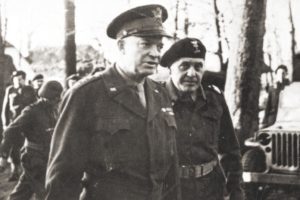
The city was captured after a few hours of fighting. The Poles altered the direction of attack, surrounded the city and entered from the East. The main battle took place between the 29th-30th October 1944. The manoeuvre used by general Maczek, took the Germans by complete surprise and the liberation of the city took place without civilian losses. General Maczek forbid the use of artillery fire against the city and the use of military interventions by air, thanks to which the city was salvaged, without serious destruction. During the fighting, 151 Polish soldiers were killed and nearly 600 Germans were captured by ‘Maczek’s men’.
Residents of liberated towns and cities in Belgium and Holland greeted their liberators with joy. As Maczek himself remembered, in windows and many shop fronts, Polish signs were hung up saying ‘Thank You Poles’. Maczek’s soldiers were welcomed into Dutch homes and some of them settled in Holland for good.
In the spring of 1945, the great allied offensive began. At the beginning of May, the armed soldiers found themselves in Wilhelmshaven where they accepted the capitulation of the general of the base at Kriegsmarine and Polish flags were raised above the port. It was there that they heard the news about the capitulation of the Third Reich. Even though the war was coming to an end, the Poles couldn’t fully share in the joy felt by the countries of Western Europe. The 1st Division received one more order, to set up a Polish occupied zone on the Dutch-German border, with a total surface area of six and a half thousand square kilometres. The informal capital of the zone was the city of Haren in Lower Saxony, which was temporarily called ‘Lwów’, however, under pressure from the Soviets, had its name changed again. Ultimately, in the years 1945-1948, Haren functioned as „Maczków”, in recognition of the merits of the General of the Black Devils. Streets in the city were given Polish names. Thousands of Polish forced labourers, prisoners of labour camps and prisoner of war camps, amongst them insurgents from the Warsaw Uprising found their shelter in Haren. At this time, there functioned in the city, over a dozen Polish schools, a theatre, book shop, publishers printing press, and even a ‘folk’ or people’s university. The Poles left the city in 1948.
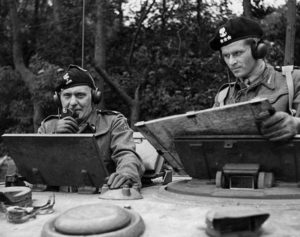
Maczek unsuccessfully tried to intervene with the superior generals of the allied armies on the issue of the Jalta agreement which was to hand over Poland into Stalin’s sphere of influence. He was met with a permissive neglect of the issue, for which for many years, the Polish soldiers had fought. In his memoires, Maczek remembered in the following way his conversation with Field Marshall Bernard Law Montgomery:
I highlighted clearly, the main essence of the issue and from the perspective that the majority of the armoured division were men from ‘Kresy’, Poland’s Eastern Borderland region. I myself, was born in Lwów, which had never, not even during the time of Poland’s three partitions, been under the rule of Russia, and now, it was so uncritically, being given to Russia. To this, Montgomery interrupted me, with a smile and said that in that case, everything was perfectly arranged, because I could now be a Russian general. That was too much for me.
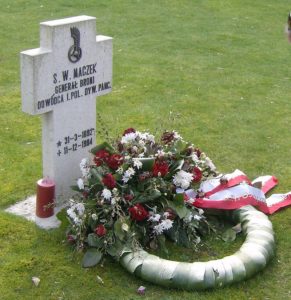
After the war, Maczek shared the fate of many thousands of Poles, who were unable to return to their homeland, which was now under Communist rule. The Communists deprived him of his Polish citizenship. As an immigrant, he led an unusually modest life: amongst others, he worked as a salesman and a barman in one of Scotland’s hotels.
Stanisław Maczek lived to a venerable age. He died in Edinburgh on the 11th December 1994 at the age of 102. He was buried at a Polish cemetery in Breda, amongst his soldiers.

